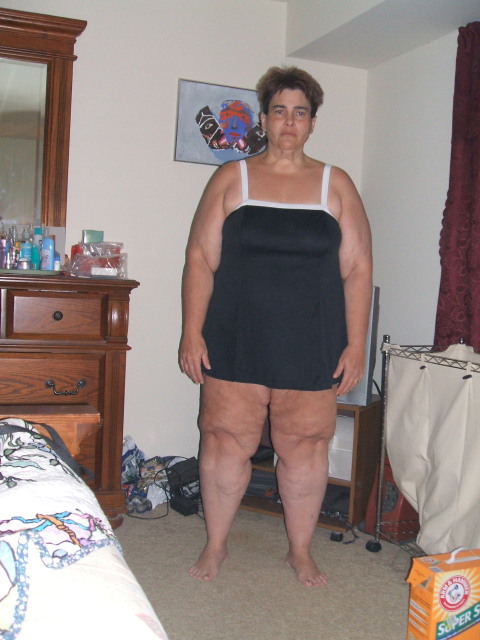3 years after gastric bypass surgery
Question
I am 3 years out from my surgery. I have gained back 37 pounds in the past year. I need to get back down. I am not happy at my current weight. I have been doing water aerobics 3 days a week (not faithfully.) I have been eating/drinking at the same time. I have also been grazing during the day. I need to know how to get back on track. I am confused about my eating schedule. Should I still be eating a meal and having protein shakes/supplements in between meals? And how many meals should I be having in a day? Please help! I have not been back to any support groups because I feel like I have failed the surgery, so that is why I am turning to you for some help. Thanks!!
Michele
Hi Michele,
Thanks for contacting me. You have a great question and it is one that many weight loss surgery patients face at one time or another.
Reflect back to what you did earlier in your post-op days. After you'd had surgery 6 months, 1 year or 18 months, what were you doing differently than what you are doing now? Were you exercising more frequently? Were you grazing? In other words, take a view of what you were doing previously and compare it to what you're doing now. For most of us as post-ops, there is something different. What I find is that grazing, eating more simple carbs such as candy, baked goods, potato chips, or fast food are different than previously.
Water aerobics is fantastic. It isn't hard on your joints yet it gives you a fantastic workout. Three days a week is great but you'll need to do it consistently. Set a minimum that you'll get in some activity such as water aerobics or other activity you enjoy (2-3 days a week) and make sure that you hit that weekly. With activity, consistency is key.
Drinking with your meals is counter-productive to our surgery. With a RNY gastric by-pass, think of your pouch as a funnel. You want the food (preferably dense protein) to stay in your pouch as long as possible. This is what will give you the feeling of satiety (feeling satisfied and "full"). If you drink with your meals, all it does is flush the food through your pouch quickly and causes you to feel hungry faster. Sips now and then through a meal should be the most you drink with a meal.
Drinking with meals was hard for me. I was used to eating and drinking with my meals. However, thinking of the funnel concept really helped me to visualize what I was doing. Drinking with meals is really a habit. If you need some moisture with dense protein, you could dip your bite of protein into some sort of liquid such as dressing to help you get it down if it is dry. Think of it as a habit and not a necessity.
As far as meals and protein drinks, it is up to you. Some people like to have three meals a day with two planned snacks. Some people eat six mini meals. The key is what do you and your body need? Some post-ops like to eat more frequent but smaller portions while others prefer to eat larger meals but less often. It is up to you and what feels best and works for your body.
Another cause for regain is emotional eating or head hunger. Are you eating out of emotion such as boredom, anger, frustration, etc? When you think you're hungry, check in with yourself as to if you are stomach, physical hunger or trying to calm or numb away an emotion? If you are craving a certain food such as a snacky or junk food, chances are that it is emotional eating and head hunger.
You DID NOT fail your surgery. Seriously, you didn't. You are not alone. Many, many post-ops go through exactly what you are. Just remember that you lost it before and you can lose it again. Return to what worked for you before and you'll lose it again.
Best of luck. Thanks again for contacting me.
In health,
Cathy, CLC
Certified Life Coach, Weight Loss Surgery Coach
Certified Back On Track Facilitator
- Prev:pancreatitis
- Next:2-3 years after surgery
Related Articles
-
had by-pass now want lap band
Questionhi,my name is andrea.on may of 2000 i had gastric bypass
-
HELP
QuestionDr. I am a nurse who had a successful DS surgery in
-
fistula after gastric sleeve surgery
QuestionI had gastric sleeve surgery in April 2010. Immedia
-
weight not going down anymore
QuestionI am almost 6 years out from open RNY. I started 308lb. G
-
lap band after roun-y
QuestionI had open roun-y done in Sept. 2000, and lost 175 lbs. &
-
fat absorption after RNY
QuestionI am about 16 months post lap-rny and I was wondering how
More Great Links

